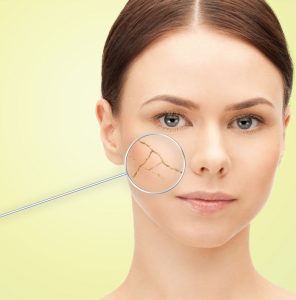Many cities implemented lockdowns in the past three months. One of the annoying aspects of the stay-at-home rule is that you can’t just go to a hospital emergency room or clinic when you don’t feel well because of something you ate. Apart from the curfew, exposing yourself to COVID-19 patients and health workers in the hospital puts you at risk of infection.
Because of this, it’s recommended not to indulge in too much “comfort food,” even after the lockdown. Doing so may trigger conditions that would force you to visit a hospital and expose yourself unnecessarily. Be smart. Avoid too much or too many of the following:
Fatty and salty food
Whether you’re at that age when you need to watch your blood pressure or not, consuming excessive fatty and salty food can raise your BP. Hypertension is not an adult condition only; it’s also prevalent among teens and young adults. In the U.S., it affects one in three people, according to the Centers for Disease Control and Prevention (CDC).
Teenage hypertension is one of the conditions often ignored or missed because young people are viewed as generally active. But even teens with active lifestyles can suffer from a stroke. A study published in the journal Post Graduate Medicine found that isolated systolic hypertension (ISH) in young people could lead to the stiffening of their artery, stroke, and brain and kidney damage.
Sweets
Diabetes is, of course, the worst that can happen to a sweet tooth. But let’s not go to that extreme. What else can eating a chocolate bar and drinking soda every day give you? Toothache and cavities! During the shutdown, many dental offices had to close. Through telemedicine, some dentists held consultations, but emergency treatments had to be scheduled.
While most dentists can now receive patients, social distancing guidelines prohibit a jam-packed dental office. So if you have a tooth problem, you either have to schedule your dental visit or look for a 24/7 emergency dental practice.

Caffeinated drinks
Caffeine’s primary role is to stimulate the central nervous system. It serves like a drug—in fact, it’s a drug—that keeps your brain excited and hooked on it. That cup of coffee in the morning or tea after lunch gives you just enough amount of caffeine to keep you alert and enhance your mood. But several coffee refills in a day can make you anxious, nervous, irritable, and emotional.
The reason is that as caffeine wakes up your brain, the brain sends a message to your pituitary gland (which controls your hormones) that you’re going through an emergency. The pituitary gland, in turn, commands the adrenal glands to release the hormone adrenaline, which produces your “fight or flight” reaction. So imagine yourself stressing over the virus risk and the state of your finances. You don’t see your children because of the lockdown, and then you alternate coffee, tea, and soda all day. That will be a disaster.
Carbohydrates
Elementary, Watson. It will make you fat unless you exercise regularly. And if you gain weight, you’ll be sad, anxious, antisocial, maybe even depressed, and self-destructive. If you love carbo, carbo-load for the gym, go jogging, or engage in whatever vigorous physical activity you do. But if you plan to stay home all day and work or watch Netflix, ease up on the rice and white bread.
Alcohol
A glass of wine, a sip of brandy, or screwdriver is fine. The last thing you want to be during lockdown—or the pandemic—is getting drunk. It may be fun during the first days of the quarantine (heck, you have nothing to do). But having a regular headache, oversleeping, and being unproductive all day every day are no joke. This is not the time to waste away. You need to be alert and in control.
By consuming these food items and drinks in moderation, you avoid a potential health problem that would bring you (or confine you) to a hospital. Eat healthier so that you can live better.





